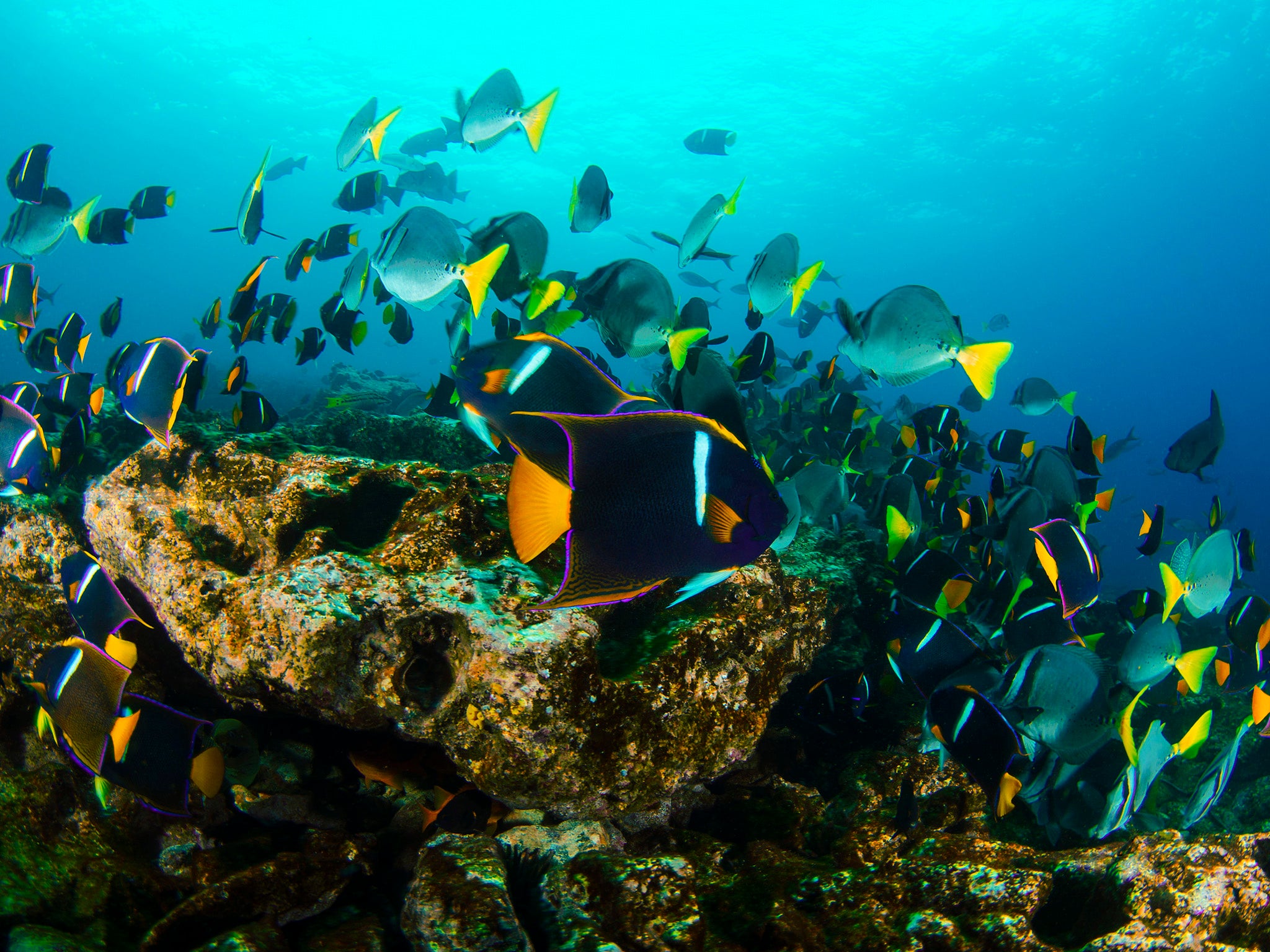Hundreds of Chinese fishing vessels ‘target’ Galapagos Islands
Huge fleet evaded trackers on edge of protected zone

Your support helps us to tell the story
From reproductive rights to climate change to Big Tech, The Independent is on the ground when the story is developing. Whether it's investigating the financials of Elon Musk's pro-Trump PAC or producing our latest documentary, 'The A Word', which shines a light on the American women fighting for reproductive rights, we know how important it is to parse out the facts from the messaging.
At such a critical moment in US history, we need reporters on the ground. Your donation allows us to keep sending journalists to speak to both sides of the story.
The Independent is trusted by Americans across the entire political spectrum. And unlike many other quality news outlets, we choose not to lock Americans out of our reporting and analysis with paywalls. We believe quality journalism should be available to everyone, paid for by those who can afford it.
Your support makes all the difference.A huge fleet of Chinese fishing vessels stationed off the coast of the Galapagos Islands has led to consternation in Ecuador, as well as concern from locals over the environmental consequences.
Along with designated Unesco heritage status, the rich, Pacific waters surrounding the archipelago are covered by an Exclusive Economic Zone (EEZ) restricting fishing and other activities.
In late July, around 260 Chinese fishing vessels were found by Ecuador’s navy stationed just outside the EEZ.
Data from a US-based data analytics firm tracking the activity of the fleet found hundreds of suspicious instances in which ships "went dark" by deactivating their Automatic Identification System, leaving open the possibility that they broke international law by fishing within the Galapagos EEZ.
“This is an attack on our resources,” Angel Yanez Vinueza, mayor of the Galapagos island Santa Cruz, told the Los Angeles Times.
“They are killing the species we have protected and polluting our biota with the plastic waste they drop overboard. They are raping the Galapagos.”
In August, hundreds of Santa Cruz locals turned out to protest the fishing fleet over fears that it was depleting natural resources that support the islands’ economy.
The Galapagos Islands are famed for Charles Darwin's documentation of the extraordinary diversity of wildife on the archipelago that inspired his Theory of Evolution.
Analysis by conservation charity Oceana found the Chinese vessels were responisble for 99 per cent of visible fishing activity around the edge of the EEZ.
The fleet has raised environmental concerns too, as the waste generated by potentially thousands of fishers over several months drifts onshore.
Along the coast of the tiny Mosquera Island, Fernando Ortiz, a park guide and former conservation official found dozens of plastic bottles, shoes and other litter labelled with Chinese lettering.
"These are from the boats," Mr Ortiz told the Los Angeles Times, noting the "newness" of the items which was apparent in the labels that had not been faded in the sun or sea.
Ecuador responded with concern to the fleet, with Oswaldo Jarrin, the defence minister, saying the navy was “on alert” and had been patrolling in the area.
The US National Security Council tweeted that Washington stands with Ecuador “against any aggression directed toward their economic and environmental sovereignty”.
China has defended the fleet’s presence, claiming that it is a “responsible fishing nation” that does not tolerate ilegal fishing. The Chinese Embassy in Ecuador said in a statement that China respects measures to protect the environment and preserve marine resources of the Galapagos Islands.
Subscribe to Independent Premium to bookmark this article
Want to bookmark your favourite articles and stories to read or reference later? Start your Independent Premium subscription today.



Join our commenting forum
Join thought-provoking conversations, follow other Independent readers and see their replies
Comments